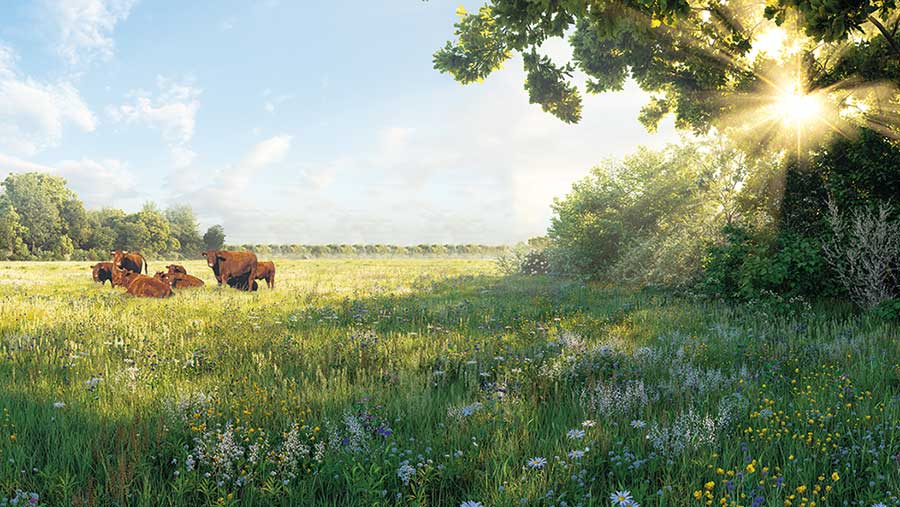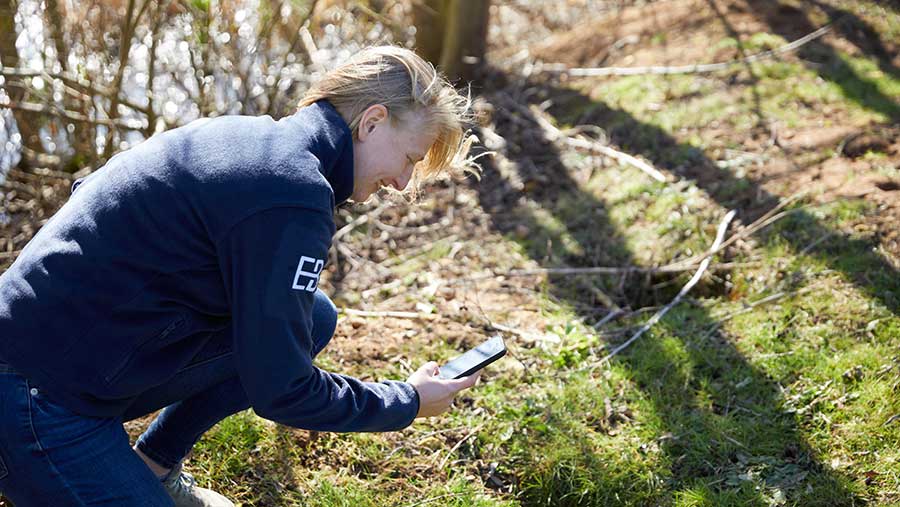Advertiser content
Future-proof your farm business with biodiversity net gain
The future of publicly funded agricultural subsidies in England is unclear, and this poses a problem for everyone from farmers to estate owners and managers.
Without clarity on where funding will come from as we move ever closer to European subsidies ending and the closure of the BPS scheme, it’s increasingly difficult to make investment decisions for the future.
Knowing where and when investment is coming from helps businesses plan strategically for their futures.
Whether it’s an investment in precision farming equipment or a guaranteed income to support new ventures, taking a long-term view of the future of the land enables long-term planning, but change takes time to implement, and with a limited funding roadmap, it’s hard to do.

Habitat Bank creation provides secured and significant payments for a 30 year term. © Environment Bank
Financed through sustainable investment, funding for Environment Bank’s unique Habitat Bank model is guaranteed.
Environment Bank is establishing over 200 Habitat Banks – areas of biodiverse habitat across England – and is already providing a secured income stream to many.
Environment Bank looks to contract the management of the Habitat Bank back to the farmer, which makes up part of the payments, alongside a lease agreement and generous welcome fee.
Typically, Habitat Banks consist of a mosaic of habitats including species-rich grassland, woodland, rewilding sites or wetland and are designed to preserve the agricultural character of the land.
They work alongside other funding schemes and can benefit other farm diversification enterprises such as tourism. Habitat Banks can help to increase agricultural yields and can be grazed or cropped for hay, in fact, it helps.

Environment Bank covers all capital costs and long-term funding requirements to create and manage the Habitat Banks © Environment Bank
Ecologists help create bespoke land management plans that work alongside current operations and fully support the complex habitat creation for the full 30 year term.
Environment Bank covers all capital costs for establishing and managing the Habitat Bank, extending to legal and tax advice where appropriate.
They take care of the long-term funding requirements and monitoring and reporting of the biodiversity uplift, removing the long-term liability from the farmer.
Environment Bank has a robust process for assessing the land and formalising a habitat establishment and management plan, with the average time from enquiry to sign on being just 20 weeks.
Many farmers are planning on using the immediate capital injection from the welcome fee and the first year’s rent, which is paid upfront, to invest back into their infrastructure and equipment, or for other new enterprises that help further future-proof their business.
Toby Diggens from Tiverton in Devon is one farmer already benefiting from the scheme.
He said; “Being involved in such a groundbreaking project is important to us, it’s one of the ways we can personally contribute to restoring nature and helping reverse the environmental crisis, but also, the management of the landscape provides a vital new income stream for the farm business.”
Environment Bank has a ready-made, fully funded BNG solution removing any of the long-term risks of the scheme failing – that all sits with them.
Payments are guaranteed for 30 years and start immediately on signing, up to £27,000 per hectare, increasing with inflation, plus a welcome bonus.
They consider all types of land upwards of 10 hectares, including currently low-yielding areas, pasture and scrubland as well as underperforming arable land. This is across the acreage and doesn’t have to be in one block.
To get started, and to find out what your habitat and income options are, call our team on 01904 202 990 or register your land at environmentbank.com.
Provided by
Environment Bank is leasing parcels of land to create biodiverse habitats that will play a key role in restoring ecosystems while also providing a secure, long-term income for farmers and landowners though Biodiversity Net Gain (BNG).
